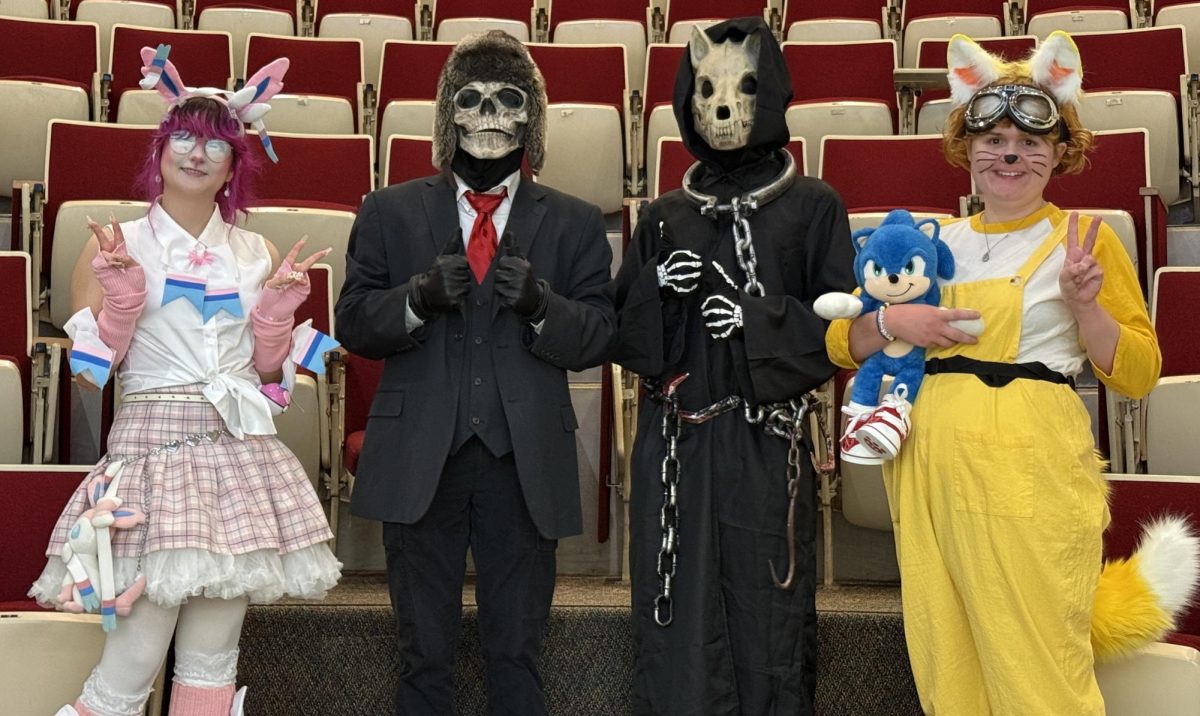Maggie Haddock
News Writer
[email protected]
The Student Government Association held their weekly senate meeting Feb. 22, welcoming Associate Vice Chancellor for Student Affairs Jill Moffitt to address questions from senate members about Title IX.
“The truth is, it depends. There’s no right or wrong in Title IX. It’s very gray work,” Moffitt said in response to a hypothetical case presented by a senate member. “The Title IX process is not a legal process, it is an educational process.”
Moffitt addressed concerns and questions presented by SGA senate members, including how the Title IX office handles cases which occurred off-campus and cases regarding student groups such as athletes, fraternities and sororities at UNCA.
Title IX offers various remedies and resources for victims of sexual misconduct. Title IX connects students to organizations such as Our Voice and Helpmate which aid students in recovery services, while academic accommodations and living arrangements can also be made through Title IX, Moffitt said.
“Title IX doesn’t just look at sexual assaults. Title IX looks at sexual harassment, we look at access and equity to programs. We look at sexual exploitations and non-consensual touching,” Moffitt said.
Title IX also complies with both the person filing a report and the person reported for their alleged activity, Moffitt said.
“In general, both the respondent and the complainant have rights. All of the rights they have are very similar. They’re each entitled to an attorney. They’re each entitled to a process advisor,” Moffitt said.
Moffitt not only compared but contrasted the rights of both parties in Title IX cases, emphasizing the seemingly equal rights of the parties even in their differences.
“The difference in their rights is that the complainant decided if they want the process from the university to go forward, and the respondent can decide if they want it to go a hearing board or not.”
Jill Moffitt’s dialogue with SGA on Title IX was succeeded by Lee Elliott, a representative of the ASHE student organization on campus. Elliot clarified past problems with an ASHE survey which collected student information as opposed to hosting the survey anonymously.
“We were asking for full names and student ID numbers originally until we found out that was problematic and email addresses so that we could take it to the school administration and say that these are actual students at the university and not just a bunch of people filling out the survey,” Elliott said.
While these items are no longer required in the survey hosted by ASHE, only necessary administrative staff views the student information requested in the survey, Elliott said.
“We’re not sharing any data with anyone other than the administrative staff,” Elliott said. “It’s not anything that’s going to be published in a report or a paper or anything like that.”
Elliott presented the club’s initiatives for providing more organic and local food options on campus and increasing the amount of what Elliott describes as real food on campus.
“Our main campaign that we’re working on this semester is the Real Food Challenge,” Elliott said. “We’re trying to get 20 percent (real food) on campus. What that means is local, organic, humanely sourced or fair trade.”
SGA members had concerns about the club’s initiatives, including the cost to students of the new and possibly more costly meal options on campus.
“The students who are on campus are forced to have a meal plan and it is currently almost $2,000,” SGA Chief of Staff Tatiana Miller said. “Personally, I’m not willing to pay more than that. I don’t even want a meal plan. I already don’t eat on campus and that’s mainly due to dietary restrictions, but I’m sure there are other students who just don’t want to pay more for someone else’s agenda.”
Although still in the process of finalizing numbers, Elliott assures ASHE and Chartwells continue to work in making sure the potential meal plans remain as consistent as possible with the university’s current meal plans.
“Ideally, it would be cost neutral. The meal plan wouldn’t go up,” Elliot said. “Just from our meeting in the past week, Chartwells recently signed on a public, green restaurant. They paid people to come audit the food program to figure out how we could be more green. The Real Food Challenge is a free service, so Sonia Marcus and the person who came to audit, that didn’t cost anything other than their time.”
The meeting adjourned after clarification of important issues on the UNCA campus, including Title IX’s role on campus and the continuing efforts to provide students with both financial and health-beneficial initiatives on campus. SGA President Charlie White made an equally important announcement at the meeting, although much more lighthearted.
“I need to make a very serious announcement,” White said. “Wash your hands. You don’t want to catch whatever is going around this building.”
Categories:
Jill Moffitt joins SGA senate meeting to discuss Title IX on campus
March 3, 2017
0
More to Discover


















